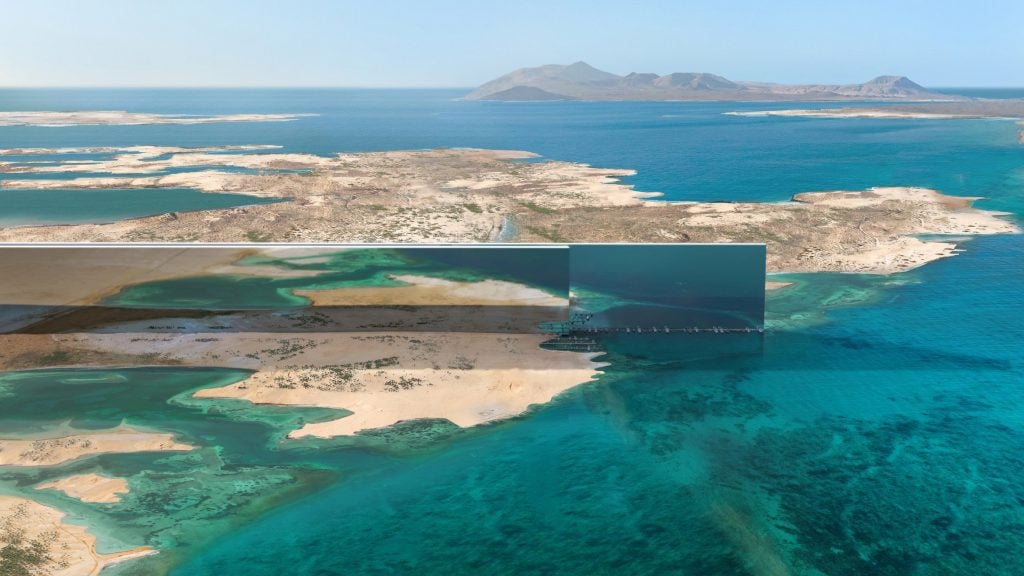[ad_1]
This week on Dezeen, we compiled an explainer of all the key facts you need to know about the Neom development in Saudi Arabia and its megacity The Line, which is proving to be the most controversial architecture project in recent history.
Set to occupy around as much space as the entire country of Albania, Neom will be split into 10 different regions including a floating port, a ski resort in the Sarwat Mountains and a mirrored city for nine million people formed from two linear skyscrapers.
Our explainer breaks down everything from how the project is financed to what architecture studios are working on its various different components.
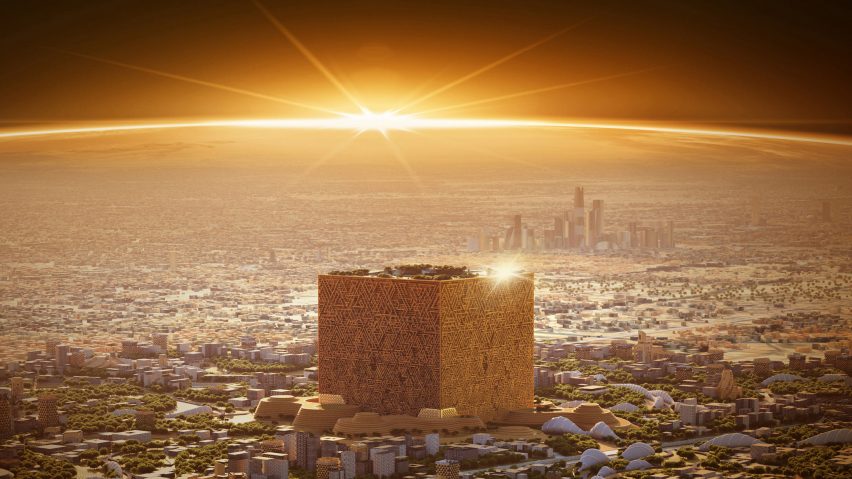
Saudi Arabia also revealed another strange-shaped skyscraper this week in the form of a giant cube, which is set to be constructed in the capital of Riyadh.
Measuring 400 metres high and 400 metres long on each side, the Mukaab building is set to become the city’s tallest building and will house two million square metres of shops alongside cultural and tourist attractions.

As the artificially intelligent ChatGPT chatbot reached 100 million users just two months after its launch, professor Neil Leach penned an opinion piece for Dezeen on the existential threat that AI poses to architects.
“There are signs that AI is becoming not only good, but terrifyingly good, to the point that it is beginning to expose our own limitations as human beings, and putting our jobs as architects unquestionably at risk,” he wrote.
When questioned by Leach, ChatGPT itself warned that architects who ignore the potential of artificial intelligence (AI) “risk sleepwalking into oblivion”.
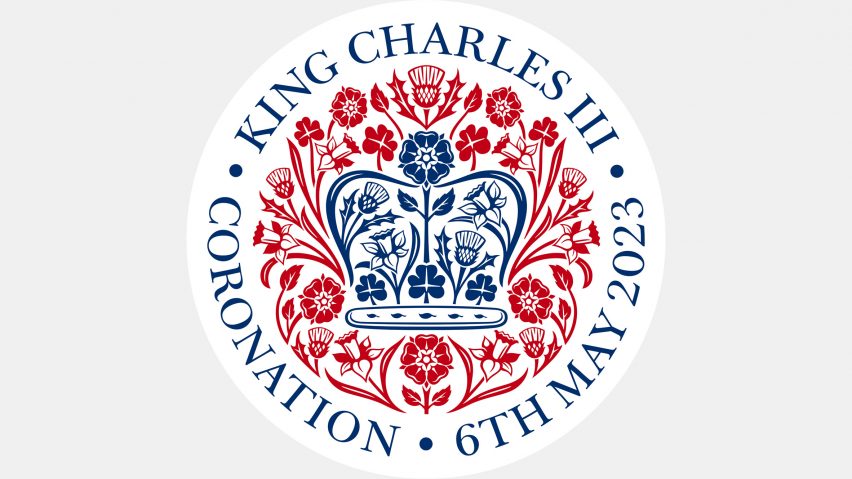
As the United Kingdom gears up for the coronation of King Charles III in May, Buckingham Palace recruited former Apple design chief Jony Ive to create the official emblem for the event.
The logo, which is set to adorn bunting, banners and memorabilia, features a crown formed from the national flowers of the four nations – the rose of England, the thistle of Scotland, the daffodil of Wales and the shamrock of Northern Ireland.

Elsewhere in UK politics, Conservative member of parliament Nick Fletcher took aim at the urban planning strategy of the 15-minute city, decrying it as a “socialist concept” that would “take away personal freedoms” and do “untold economic damage to any city”.
The statement was widely dismissed as false by architects and academics. “Last year, if I had to guess what would be the batshit conspiracy theory of 2023, I would have never guessed it would be ‘town planning where you can walk to the shops’,” said academic Philip Oldfield.
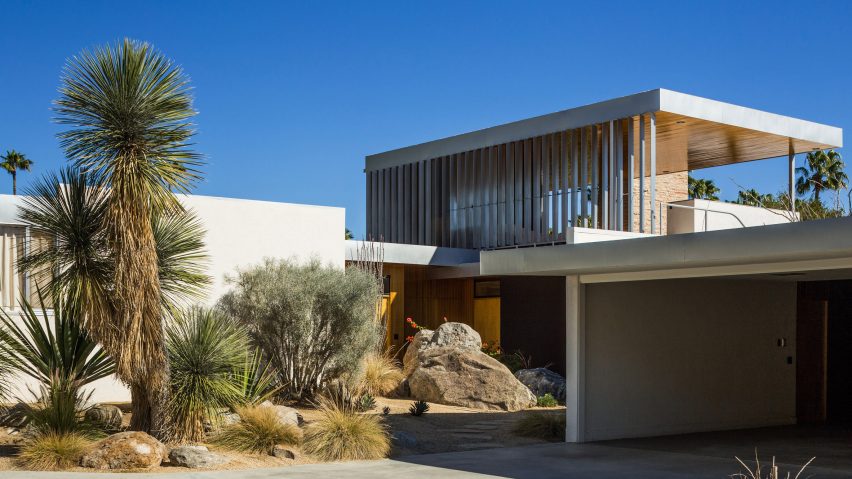
As Modernism Week kicked off in Palm Springs, the event’s CEO Lisa Vossler Smith spoke to Dezeen about how the city known for its mid-century houses is starting to embrace climate-conscious design strategies.
“The face of Palm Springs is changing,” she said. “It is getting younger and there is more contemporary design.”
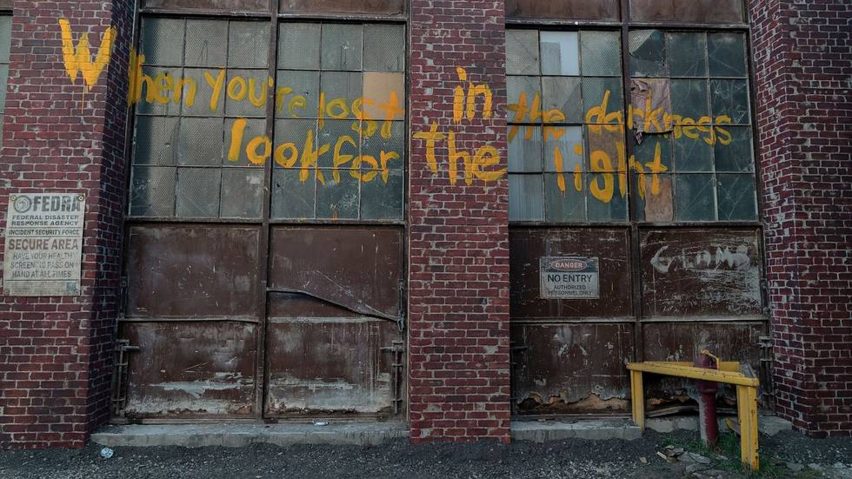
Another exclusive interview published on Dezeen this week saw John Paino dive into the process behind his set designs for the much-hyped TV series The Last of Us, based on the video game of the same name.
Paino said he took hints from the DIY construction of informal settlements and refugee camps to create a realistic depiction of how people make due in the show’s dystopian world, in which much of the population has turned into zombies thanks to an infectious fungal outbreak.
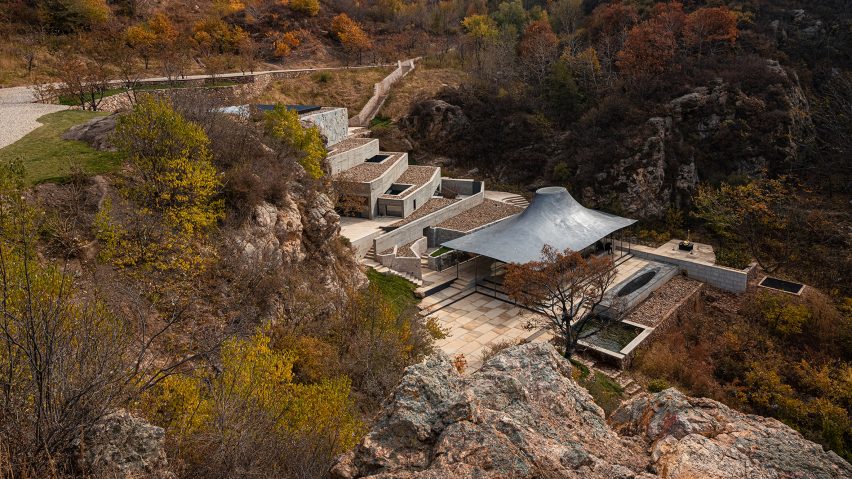
Reader’s favourite projects this week included a Buddhist temple set next to the Great Wall of China, a “truly ordinary” home in Vietnam and a renovated Brooklyn townhouse with Japanese interiors.
Our latest lookbooks focused on tidy kitchens with slick storage solutions and neutral home interiors that prove beige doesn’t have to be boring.
This week on Dezeen
This week on Dezeen is our regular roundup of the week’s top news stories. Subscribe to our newsletters to be sure you don’t miss anything.
[ad_2]
Source link
